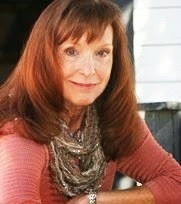“Rattle ofWant,” is a diverse collection of 46 flash fiction stories and one
novella-in-flash. Rich in
characterization that bleeds onto the page, this collection takes the reader
through the full landscape of our own human complexity as experienced through
the prism of our desires.
 Jayne
Jayne:
What intrigues me about these stories and
held me as a reader is that there is so much at stake for your characters in
each story.
It’s not just that they
“want” for something; it’s the underlying element of desperation that drives
their desire.
Was that an intention of
yours in putting together the collection?
Gay: This is a collection of the work I’ve done
over the last seven years. As for the desperation, that’s what underlies the book
and the title, Rattle of Want. When I was trying to place this group of
stories with a potential publisher, he asked me what linked them together. I didn’t really have any idea because I
hadn’t written them to link together.
I’d written them to tell stories that came to me as I was studying the
craft of flash fiction.
Jayne: That’s interesting then that it seems to be
a recurrent theme in your writing. I can
relate to that. Lately, I’ve noticed
that, without intentionally meaning to do so, I write a lot of stories that
include an element of death or dying. I’m
not sure what that says about me.
Gay: My themes seem to always have to do with
wanting and whether or not a person should pursue that want. It has been a
constant in my life. I'm a people-pleaser, or what I used to call "a
stroke monkey," not feeling good about myself unless I did something to
earn some kind of praise. My desire has
been to be my own person, to not rely on other people's estimation of me, and I
think that figures into what I write.
Jayne: “Rattle of Want” is a fabulous title.
Gay: I have to tip my cap to Randall Brown for
digging that phrase out of a story of mine and suggesting I use it as a
title. One of my earliest craft lessons
had been that a character must want something. If they don’t want anything, then they don’t
have anything to strive for, and if they aren’t striving, what is the point of
the story? Why tell it?
Jayne: Yes. And
it’s not all a life or death struggle.
We all experience a thousand little desires and frustrations to those
desires every single day. I think that’s
what makes your characters so relatable.
Gay: I learned as I began to write flash fiction
that a story doesn’t need a big dramatic desire. It can be something as ordinary as wanting
to isolate yourself and having a boy climb over your fence to sell you
magazines (“Beyond the Curve”). Or as in
my story “Oranges” wanting to feel better about yourself so you buy oranges
from a homeless girl on a freeway on ramp and not getting the result you
expected. We all experience desire, sometimes we’re desperate in that desire,
and that’s what I try to tap into.
Jayne: One of the things I'd like to touch on is the
kind of rural voice that is prominent in several of the stories. Is that something from your own
background?
Gay: Yes, absolutely. My mother was from
south Louisiana and my father was from northeast Iowa. Although we moved
from Iowa to California when I was six, we went back to both places every
summer. I grew up to the sound of that flat mid-western accent, “you bet,”
and the Cajun clip so unique to the bayous, “how you do?” I have an ear for tone and twang so it just comes
naturally.
Jayne: I’d like to talk about the origin of some of
the stories – the seeds from which they sprung.
Tell me a little bit about “Chalk Dust.” I love this story. It’s has a very eerie “Through the Looking
Glass” feel.
Gay: “Chalk Dust” was one of my earliest stories
published online in Rusty Barnes’ Night
Train. There is a “Chalk It Up”
festival in my city every summer where artists swarm over sidewalks and create
amazing work. One year there was a set
of stairs that seemed to twist into the ground.
It was almost hard to believe it wasn’t real. I knew immediately I wanted to set a story about
that staircase in the middle of that street.
Jayne: “What’s Left” is an interesting piece in that
it is only one page long, but spans thirty years in the life of the character
and is structured chronologically from present to past.
Gay: “What’s Left” was written for a contest and
came from two short pieces that I pulled together and added the third segment. Combining
those three pieces and rewriting them is what created the structure. Structure for me usually comes during the editing phase. I respond to a prompt and then need to fit
that
response into a shape.
Many stories have come from prompts at The Flash Factory at Zoetrope online. “Fishbowl” came from a photo prompt, as did
“Losing Ground.” The character in “Blusterfuck” is a composite of husbands of
several women I’ve known over the years.
Most of what I write comes from the world around me, things I observed
in people, objects that catch my attention.
Everything feels rich with meaning.
It’s just digging down to get the gold.
Jayne: Well, readers don’t have to dig far to find
the gold in this collection. I’ve read
several of the stories more than once and because they are so subtly layered, with
each reading I feel like I discover something new. Congratulations, Gay. And thanks for sharing a bit about your
remarkable process.
 Gay
Degani has had three of her flash pieces nominated for Pushcart consideration
and won the 11th Glass Woman Prize. Pure Slush Books released her collection of
stories, Rattle of Want, (November 2015). She has a suspense
novel, What Came Before, published in 2014, and a short
collection, Pomegranate, featuring eight stories around the theme of mothers and
daughters. Founder and editor emeritus of Flash Fiction Chronicles, she is an editor at
Smokelong Quarterly and blogs at Words
in Place where a list of her published work can be
found.
Gay
Degani has had three of her flash pieces nominated for Pushcart consideration
and won the 11th Glass Woman Prize. Pure Slush Books released her collection of
stories, Rattle of Want, (November 2015). She has a suspense
novel, What Came Before, published in 2014, and a short
collection, Pomegranate, featuring eight stories around the theme of mothers and
daughters. Founder and editor emeritus of Flash Fiction Chronicles, she is an editor at
Smokelong Quarterly and blogs at Words
in Place where a list of her published work can be
found.













